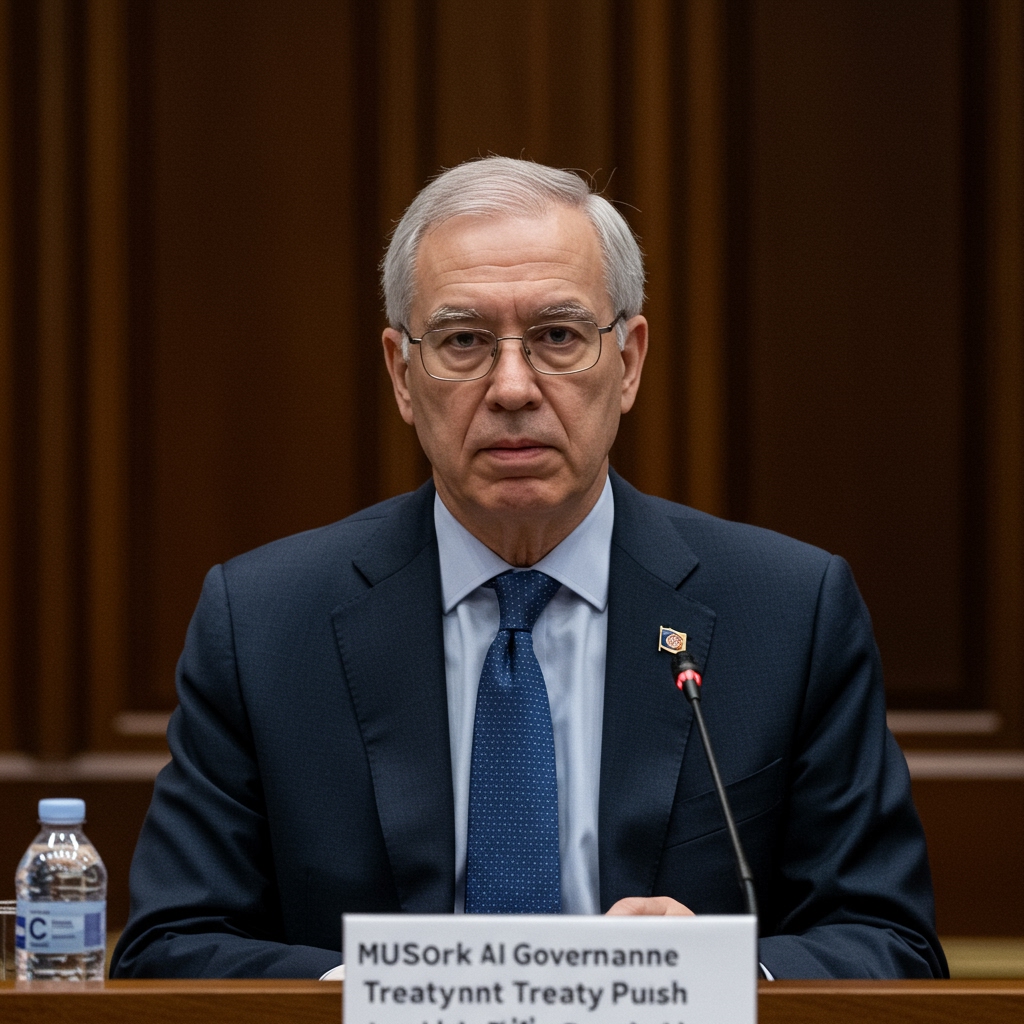Global Leaders Convene in Geneva to Forge Binding AI Governance Treaty
GENEVA – In a pivotal moment for the future of artificial intelligence governance, leaders and representatives from 50 nations convened this week in Geneva for the “FutureTech Governance Summit,” an unprecedented gathering hosted by the United Nations. The high-level meeting marked a significant step towards establishing a binding international framework to regulate the rapidly evolving landscape of AI development and deployment, addressing mounting global concerns over its potential risks and societal impact.
The summit’s deliberations centered intensely on the critical need for cohesive international standards, particularly concerning highly sensitive applications such as autonomous weapons systems (often referred to as Lethal Autonomous Weapons Systems, or LAWS) and the increasingly sophisticated large language models (LLMs) that power generative AI applications. Discussions highlighted the dual nature of AI – its immense potential for progress alongside significant ethical, safety, and security challenges that individual nations may struggle to address unilaterally.
Delegates engaged in robust debates over the principles that should underpin global AI governance, emphasizing transparency, accountability, safety, and ethical considerations. The urgent need to prevent an unconstrained AI arms race and mitigate risks associated with powerful, potentially biased, or uncontrollable AI systems formed a core part of the agenda. Concerns were raised about the potential for autonomous weapons to lower the threshold for conflict and the capacity of advanced LLMs to generate sophisticated disinformation, manipulate public opinion, or exacerbate societal inequalities.
A major outcome of the summit was the circulation of a draft treaty, tentatively named the “Geneva Protocol on AI Safety and Ethics.” This foundational document lays out initial proposals for a global regulatory architecture. Key elements within the draft include the proposed creation of a new international oversight body, specifically tasked with monitoring AI advancements, coordinating national efforts, and potentially enforcing compliance with treaty provisions. The exact structure, powers, and location of this body are subjects for future negotiation, but the consensus around the need for dedicated international oversight signals a departure from purely voluntary or national-level initiatives.
Furthermore, the draft protocol proposes implementing mandatory risk assessments for advanced AI systems. Under the current proposal, these assessments would become obligatory starting in 2026. The definition of “advanced AI systems” subject to these stringent requirements is still being refined, but is expected to encompass systems with significant capabilities, particularly those with autonomous decision-making functions or widespread societal impact. The requirement for mandatory assessments aims to ensure that potential risks are identified and mitigated before deployment, fostering a more responsible and safer AI ecosystem.
The journey towards a ratified treaty is acknowledged to be complex and challenging, requiring the alignment of diverse national interests and technological capabilities. The Geneva summit represents the crucial first formal step in this multilateral process. Negotiators from the participating nations committed to continuing these vital discussions in a series of follow-up meetings.
The next scheduled negotiation sessions are planned for Brussels in June 2025, followed by another crucial meeting in Singapore in November 2025. These upcoming summits will delve deeper into the specifics of the “Geneva Protocol on AI Safety and Ethics,” addressing areas such as definitions, scope, enforcement mechanisms, and the structure of the proposed oversight body. Significant work remains to bridge potential gaps in national perspectives on issues like data governance, intellectual property, and the balance between regulation and innovation.
The ultimate goal articulated by the participating nations is the ratification of a comprehensive, binding international treaty on AI governance by late 2027. Achieving this ambitious timeline will require sustained diplomatic effort, political will, and technical expertise. The successful negotiation and implementation of such a protocol would represent a landmark achievement in global cooperation, setting precedents for how future transformative technologies might be governed for the benefit of humanity.
The “FutureTech Governance Summit” in Geneva has undeniably set a clear trajectory, signaling a collective recognition among 50 nations that the governance of artificial intelligence requires a unified, international approach rooted in safety, ethics, and shared responsibility.





